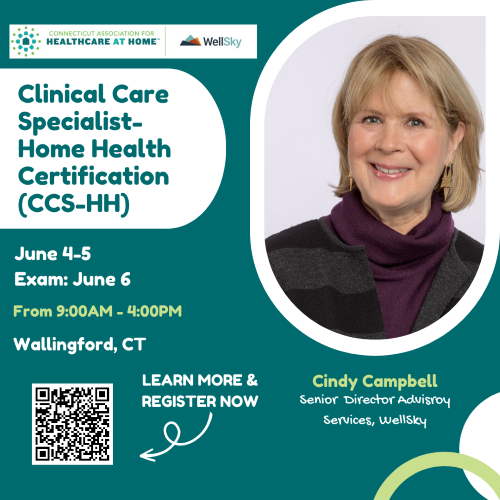 |
||||||||||||||||||||||||||
| March 21, 2024 | ||||||||||||||||||||||||||
On Thursday, March 14, Tracy Wodatch, Association Pres/CEO and Chris Pankratz, CEO of Masters in Home Care and Chair of Government Relations testified before the Human Services committee to support added funding for the safety and training of home care workers found in SB 365 An Act Concerning Safety in the Healthcare Workforce.
To access testimony, click links below:
Priority SB 1 An Act Concerning the Health and Safety of Connecticut Residents and SB 369 An Act Concerning Home Care Worker Safety were heard before the Public Health Committee on Tuesday of this week.
Sections 1-9 of both bills propose the following:
While the Association and its members fully support prioritizing the safety of the workforce caring for those in the community, we oppose the mandated intake data collection as outlined in the bill and offered support for funding escorts/safety/technology, training and the work group.
Among those who testified were (Click links to read testimony):
Also submitting written testimony were (Click links to read testimony):
Source: NAHC, March 18, 2024
The Centers for Medicare & Medicaid Services (CMS) has issued revisions to the Medicare State Operations Manual, Appendix B, also referred to as the Interpretive Guidelines for the home health Conditions of Participation(CoPs).
CMS has made several conforming changes to the regulatory tags and interpretive guidelines based on several final rules that have amended the home health agency (HHA) CoPs. Additionally, CMS combines the HHA survey protocol and interpretive guidelines into one document, updating Level 1 tags, and making clarifications and technical corrections to other guidance areas based on stakeholder feedback.
Source: DecisionHealth, March 14, 2024
Occupation therapy (OT) may soon be a qualified service under home health benefits, thanks to a new bill with bipartisan support titled the Medicare Home Health Accessibility Act.
If signed into law, this would allow occupational therapists to initiate home health care, something they can’t currently do without another therapy service also ordered.
This could help agencies combat staffing shortages and save time for a lot of agencies, experts say.
There are many patients whose focus is improvement in activities of daily living (ADLs) that currently must have another qualifying discipline working with the patient in addition to OT to be covered under the Medicare benefit, explains J’non Griffin, senior vice president/principal of the coding and compliance departments with SimiTree Healthcare Consulting in Hamden, Conn.
Source: Hospice News, March 15, 2024
The Medicare Payment Advisory Commission (MedPAC) has recommended to Congress a freeze on hospice payment increases starting in 2025.
In its annual report to Congress, MedPAC urged policymakers to eliminate hospice base-rate increases for 2025.
“Based on the positive indicators of payment adequacy and strong margins, the Commission concludes that current payment rates are sufficient to support the provision of high-quality care without an increase to the payment rates in 2025,” MedPAC indicated in its report. “The Commission recommends that the Congress eliminate the update to the hospice base payment rates for fiscal year 2025.”
MedPAC commissioners maintained that hospice payment levels were “favorable,” due to increases in utilization and length of stay, sufficient access to capital, investor interest in the space and margin data.
Source: NAHC, March 18, 2024
Listed below are the latest tests approved by the Food and Drug Administration (FDA) as waived tests under CLIA (Clinical Laboratory Improvement Amendments of 1988).
Some home health and hospice agencies perform tests that are considered waived under the CLIA which requires the home health agency or hospice to have a CLIA Certificate of Waiver. Waived tests a home health or hospice agency may perform include, but are not limited to:
Source: NAHC
Ensuring workplace safety resources for home health providers is paramount to maintaining a secure and healthy work environment. Home health providers face unique challenges as they navigate various settings while delivering care. By prioritizing these resources, organizations can empower home health providers to provide quality care while safeguarding their well-being.
|
||||||||||||||||||||||||||
| Past Issues | Subscribe | cthealthcareathome.org | Advertise with Us | ||||||||||||||||||||||||||





